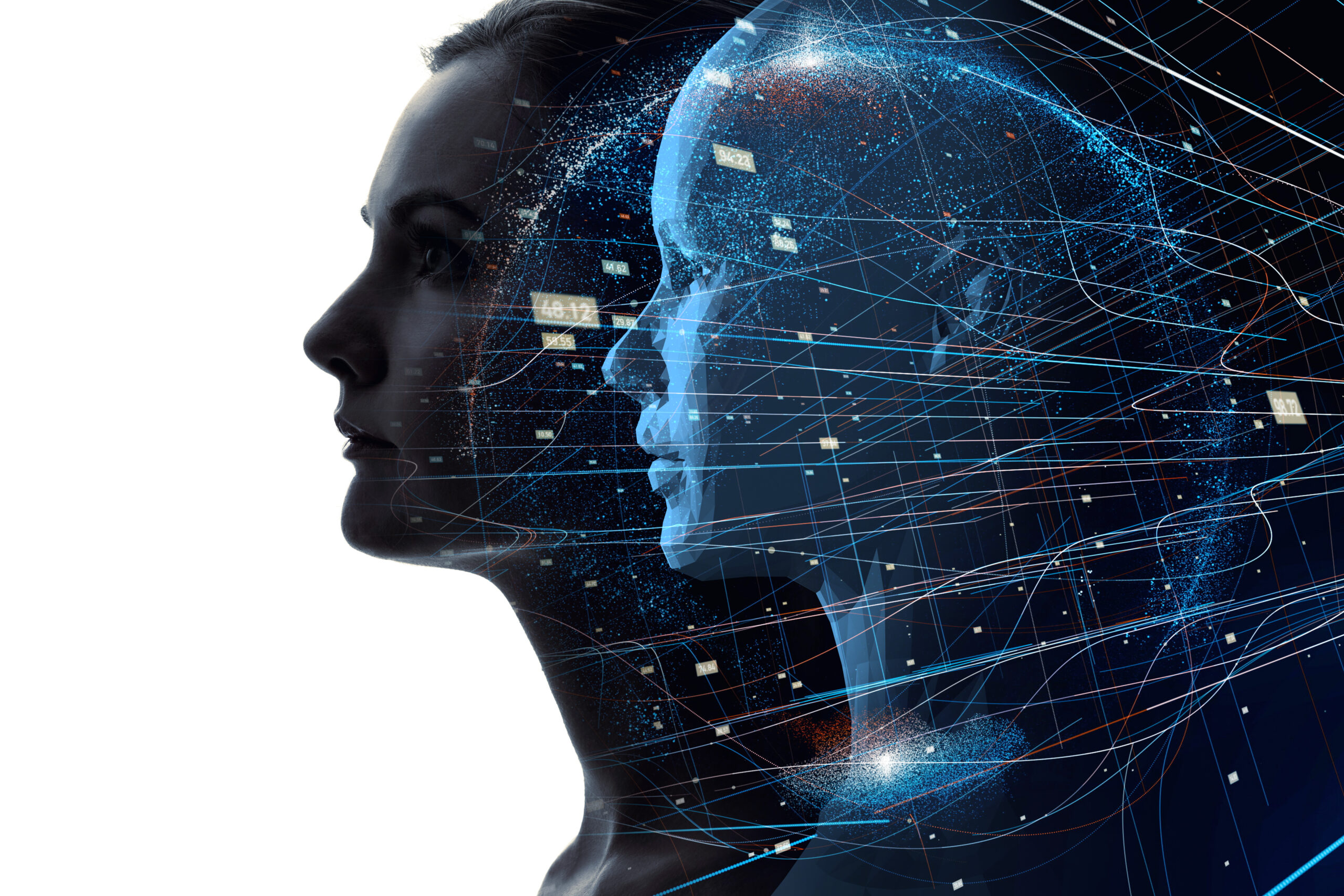-
Contents
- Introduction
- Conversational AI and GPT for Mental Health Support
- Emotional State Assessment
- Potential and Limitations
- Conclusion

Introduction
In the deepest hours of the night, when the rest of the world retreats into silence and solitude, the complex challenges of mental health remain active and often intensify. It is during these quiet, introspective hours, typically between midnight and 4am, that many individuals find themselves grappling with their most profound mental health struggles. The stillness of the night, devoid of the distractions of daylight activities, can amplify feelings of loneliness, anxiety, and despair. This scenario presents a unique challenge in mental health care: providing support when traditional resources, like therapists and crisis centers, are less accessible.
Enter the realm of AI chatbots, a technological innovation that has begun to redefine mental health support in these critical after-hours. A study by the Journal of Clinical Psychiatry has brought to light the increased risk of suicide attempts during these late-night hours, underscoring an urgent need for accessible, immediate mental health care. AI chatbots, operating tirelessly 24/7, emerge not just as tools but as lifelines for individuals in acute distress. They offer a form of support that is not bound by time or physical location, providing a critical safety net for those who might otherwise have nowhere to turn.
This introduction of AI into mental health care during nighttime is not just a matter of convenience but a potentially life-saving intervention. These chatbots serve as a bridge, connecting individuals to the help they need at a time when human help might be hours away. Their ability to offer immediate, anonymous support makes them especially suited for the unique challenges presented by the nighttime hours. As we delve into the capabilities and implications of these AI chatbots, it becomes evident that their role is not merely supplementary but can be central in crisis intervention and ongoing mental health support.

Conversational AI and GPT for Mental Health Support
The development and implementation of AI chatbots for mental health support, particularly during high-risk nighttime hours, necessitates a deep understanding of both technological capabilities and psychological nuances. This is where expertise in the field of Generative Pre-trained Transformers (GPT) and Conversational AI becomes invaluable. The complex task of creating chatbots that can conduct empathetic, human-like conversations in a mental health context is one that requires not just technological proficiency but also a profound understanding of human psychology.
Utilizing the advanced language models of GPT, these chatbots are equipped to engage in nuanced, unstructured dialogues that are essential in mental health care. This capability is particularly crucial during the late-night hours, a time when individuals often feel most isolated and in need of support. The integration of GPT technology allows for a level of conversation that is empathetic, context-aware, and responsive to the emotional state of the user, mirroring the qualities of a human therapist.
The expertise in deploying these sophisticated AI solutions is a testament to the depth of understanding of both the technology and its application in mental health. By focusing on the development of AI chatbots that are not only technically advanced but also attuned to the complexities of human emotions and mental health challenges, the goal is to create a platform that offers meaningful, real-time interaction. This interaction is more than just an exchange of information; it’s about providing a supportive, understanding presence during times of need.
In this way, the implementation of advanced Conversational AI in mental health care, especially during nighttime, is not just an exercise in technical prowess. It’s a demonstration of how the thoughtful application of technology, guided by a deep understanding of human psychology, can significantly enhance mental health support services. It underscores the potential of AI to not just assist but also empathize, reflecting a commitment to leveraging technology for compassionate and effective mental health care.
Emotional State Assessment
The emotional state assessment capabilities of AI chatbots represent a groundbreaking advancement in providing mental health support, especially during the critical nighttime hours. These chatbots, empowered by sophisticated algorithms and natural language processing technologies, can interpret and respond to the emotional cues of users. This level of assessment is not merely about recognizing words but understanding the underlying emotions and sentiments expressed in a conversation.
In the realm of mental health, where emotions are complex and often deeply personal, this feature of AI chatbots becomes invaluable. By offering users a range of response options and employing advanced sentiment analysis, these AI systems can accurately gauge the intensity and nature of a user’s emotional state. This ability goes beyond mere algorithmic processing; it involves a nuanced understanding of human emotions, allowing the chatbot to tailor its responses to the specific needs and emotional states of each individual.
Moreover, this emotional state assessment is crucial in identifying the severity of a person’s mental health condition, particularly in scenarios where the individual might struggle to articulate their feelings. In such instances, the chatbot’s ability to discern subtle emotional nuances can guide the conversation towards more supportive and therapeutic interactions. This is especially significant during the night when users may be seeking immediate emotional support and are more susceptible to feelings of isolation and despair.
The development of these emotionally intelligent chatbots, thus, marks a significant stride in mental health care. It embodies a blend of technical innovation and empathetic engagement, striving to create a digital space where individuals feel heard, understood, and supported. As these technologies continue to evolve, they promise to enhance the quality and accessibility of mental health support, making it more responsive and attuned to the emotional needs of individuals, regardless of the time of day.
Potential and Limitations
The implementation of AI chatbots for nighttime mental health support brings with it a realm of immense potential, yet it’s accompanied by inherent limitations that must be navigatively managed. On the one hand, these AI systems offer unprecedented accessibility to mental health resources, particularly during the late hours when traditional services are unavailable. This 24/7 availability can be a lifeline for individuals in acute distress, potentially reducing the risk of severe mental health crises, including suicide.
The potential of AI chatbots also extends to their scalability and consistency. They can cater to a large number of users simultaneously, providing immediate support without the constraints of human resource limitations. Additionally, the consistency in the quality of support offered by AI systems can ensure a standardized level of care, which is particularly important in managing mental health issues where the timing and response can be crucial.
However, the limitations of these AI chatbots are equally important to acknowledge. Despite the advances in technology, AI cannot fully replicate the depth and empathy of human interaction. The subtleties of human emotion and the complexities of mental health conditions can sometimes be beyond the scope of even the most sophisticated AI. This limitation is particularly significant in the context of therapy and complex psychological support, where human judgment and experience play irreplaceable roles.
Moreover, there are concerns regarding the ethical use of AI in mental health, including issues related to privacy, data security, and the potential for dependency on these systems. Ensuring the confidentiality of sensitive personal information and maintaining the ethical integrity of these interactions are paramount.
Conclusion
As we look toward the future of mental health care, AI chatbots, particularly in their role as nighttime support systems, stand at the forefront of a significant paradigm shift. Their emergence as 24/7 mental health assistants marks not just a technological breakthrough but a new chapter in empathetic patient care. These systems, with their ability to offer immediate, anonymous support, have the potential to fill critical gaps in mental health services during the most vulnerable hours.
The journey of integrating AI chatbots into mental health care is a testament to the remarkable progress in AI and machine learning. It showcases how technological advancements can be harnessed to address some of the most pressing challenges in healthcare. However, this journey also brings to light the importance of balancing innovation with caution. The limitations of AI, particularly in understanding the full spectrum of human emotions and experiences, remind us of the irreplaceable value of human touch in therapy and mental health support.
Looking ahead, the continuous refinement and ethical development of AI chatbots will be crucial. Their role in supplementing human-led mental health services, especially during the night, will evolve, guided by advancements in technology and a deeper understanding of mental health needs. As this field grows, so does the promise of providing more accessible, effective, and empathetic mental health care to those in need, regardless of the time or place.
In essence, AI chatbots in mental health care, particularly as nocturnal support systems, are more than just a technological solution; they represent a commitment to compassionate care, innovation, and the unwavering pursuit of supporting mental well-being in an ever-changing world.


